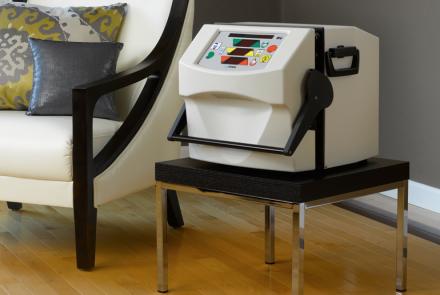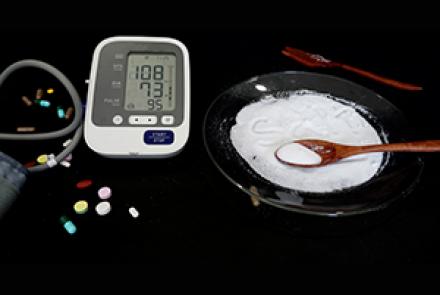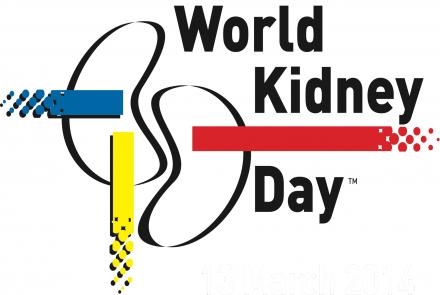
As we near the two month mark of this lockdown in India, the issues that dialysis and transplant patients face continue. Dr Rahul Kohli, Nephrologist, SPS Hospitals, Chandigarh answers patient’s questions in a live webinar held on 30th of May. To listen to the entire webinar in Hindi and English, click on the video link below.
1. Can dialysis patients reduce their dialysis frequency?
Many patients have asked if they can reduce their dialysis from 3 times a week to twice or just once a week. This is never a good idea as dialysis is essential for proper functioning of the kidneys. Hence it is never advisable to skip dialysis sessions as it will keep you healthier. If dialysis is reduced, your immunity can drop as haemoglobin levels decrease making one more susceptible to infections.
2. What precautions should patients take when going for dialysis?
Our entire lifestyle has changed due to this pandemic and since there is no treatment or vaccine yet, prevention is our best bet. Standard procedures are to be followed such as proper hand hygiene, physical distancing, mask wearing, and no touching of face.
Continue with your old dialysis centre that you are familiar with and where the staff knows you. If you have any new symptoms, then inform your dialysis centre by calling them. This will prepare your centre to screen you the next time and take necessary precautions. If they are unequipped to handle COVID patients, then you will be transferred to a new facility.
3. Do dialysis patients who test positive have to continue dialysis?
Dialysis must be continued because it is the lifeline to survival. Dialysis should continue in the isolation room of the centre where the staff will be donning full PPEs. If the dialysis centre does not have isolation rooms, then such patients can be called at the last shift of the day to minimise exposure to other patients and hospital staff. If this is also not an option, the COVID patients should be distanced at least 6 feet away from other patients and handled by staff in PPEs.
4. My weight has dropped from 72 to 52 kgs. How to increase actual weight during dialysis?
For dialysis patients, there are two types of weight: dry and wet.
Wet weight is the fluid weight. Since dialysis patients do not produce urine, the fluid intake between two dialysis sessions causes weight gain. This is called Intradialytic weight gain. So, on the next dialysis session, the weight is calculated to figure out how much fluid needs to be removed. Initially when patients come to us, they are overweight due to the high fluid accumulation. Fluid is gradually removed over several dialysis with the aim to bring the patients back to their baseline weight.
Dry weight is your weight without the fluid that is gained between two sessions.
The main cause of weight loss in dialysis patients is inadequate diet. If your dry weight has decreased, it means there is loss of muscle mass which is not good.
So, if you have any weight loss, you need to consult your Nephrologist to investigate if your loss is due to dry or wet weight.
5. Can patients buy generic drugs when brands are not available, especially in rural areas?
Yes, that is fine. Medicines can also be ordered online now so make sure medicines are not missed.
6. What is the advice for patients due to follow-ups or consultation visits?
Nephrologists have been doing tele consults for patients now, however our patients living in rural areas are not very comfortable with it. For instance, in Punjab, many elderly live by themselves in villageswhile their children are settled abroad. Telemedicine was proving difficult for them. Both face-to-face and telemedicine consults have been kept as options for patients.
7. Which EPO is better? With or without the safety device?
EPO with the safety device is better because it prevents needle-stick injuries. As far as efficacy and potency is concerned, both are the same.
8. What is fist-assisted device? Does it help in developing vein size?
This is a device to help your fistula work better. Normally certain exercises are advised to patients to increase the flow through the fistula.
9. What precautions should pre-dialysis patients take?
Most kidney disease patients have diabetes and/or hypertension. 30-40% also have heart diseases. Hence all pre-dialysis patients should take added precautions to avoid contracting infections.
10. Tacrolimus level testing has stopped due to the lockdown, is that okay?
Tac levels that normally would go daily via courier have now reduced to twice a week. So, stay in touch with your Pharma representative and Nephrologist so that your sample is taken on those specific courier days.
11. Which fruits are to be avoided by kidney transplant patients?
If the transplant patient has a normal functioning kidney, then no fruits are to be avoided, provided the potassium levels are normal.
12. Can kidney patients or transplant recipients resume work once lockdown relaxes?
This is a tough question since it involves the livelihood of the person. If you must resume work, treat every person you meet or interact with as a potential corona virus carrier. Exercise all the hygiene measure diligently.
13. Can a patient get their newly developed cataract treated during this period?
It depends if the cataract has matured or not. Currently all elective surgeries are being avoided. If you can live with it, then best to defer the surgery for the next 2 months. If it is affecting vision and your daily life, speak to your Ophthalmologist and get the surgery done in a clean set-up.
14. How can patients deal with the increased dialysis cost?
The cost of the mask, gloves, PPEs etc are passed on to patients and this has caused the increase in cost. In good hospitals, there were standard practices to use sanitization and gloves. Now that awareness has increased, patients are demanding that smaller centres also follow these protocols. Taking private transport may have increased cost of travel.
15. What reduces gum diseases and hypertrophy?
Transplant recipients are usually on immunosuppressants drugs (tacrolimus , cyclosporine etc) which do cause gum hypertrophy and gum diseases as a side-effect. Some medications like Azithromycin helps. If that does not work, consult a Dental Surgeon who can treat you and nip the excess tissue around the teeth for hypertrophy.
16. I’m a kidney recipient and lately my creatinine levels are 3. I have also noticed foamy urine and protein in urine.
If the creatinine level is 3, it means that the graft is not working well. There may be development of graft dysfunction. You will have to take the same precautions as a pre-dialysis patient. This includes cutting downon fruit, potassium rich vegetables, salt and high protein foods.
17. What tests beside kidney function should a transplant recipient take?
Post-transplant patients should undergo drug level testing as decided by their Nephrologist. Twice a year lipid profile (cholesterol and triglycerides) should be done. Vitamin D levels, and a renal scan to check for any obstructions should be done every two years.
18. Why does my sugar drop during dialysis?
There are three ways to control and avoid this:
- Do not take your insulin or diabetes medicines before going in for dialysis.
- Eat some snacks while dialysis is on.
- Ask your health care team to include glucose into your dialysate solution.
|
Deepanita’s recalls her experience during this lockdown while trying to sort out her mother’s dialysis. I live in Kolkata and my parents stay in Mumbai. My mother has stage 5 Chronic Kidney Disease and require 8 hours of dialysis every week. On 9th of April, my mother’s dialysis facility shut down. We spoke to her Nephrologist who referred her to another dialysis centre. However, my mother would need to get a COVID test done before enrolment. We called all the private testing centres to try and get it done but all were fully booked for at least a week. Even the hospital laboratory where she was now referred to, was running on a backlog. This meant that she would have to miss dialysis for a full week. After 5 days of trying, my mother started showing signs of fluid accumulation in her body as she has now missed 2 dialysis sessions which is approximately 8 hours. While I was sitting far away in Kolkata, I was beginning to feel very helpless. This was also the first time I saw my usually strong mother breakdown. The mental trauma was just too much. My husband then tried to reach out to a doctor who helped get us an appointment with Metropolis. The test was finally done, and results arrived the following day. The new hospital facility then started her on dialysis after seeing her negative reports and all medical paperwork from her doctor. She had to go on a strict diet to make sure her fluid accumulation was in control. It took 4 weeks for her to get back to her normal weight. It was an unnerving experience for all of us. |













